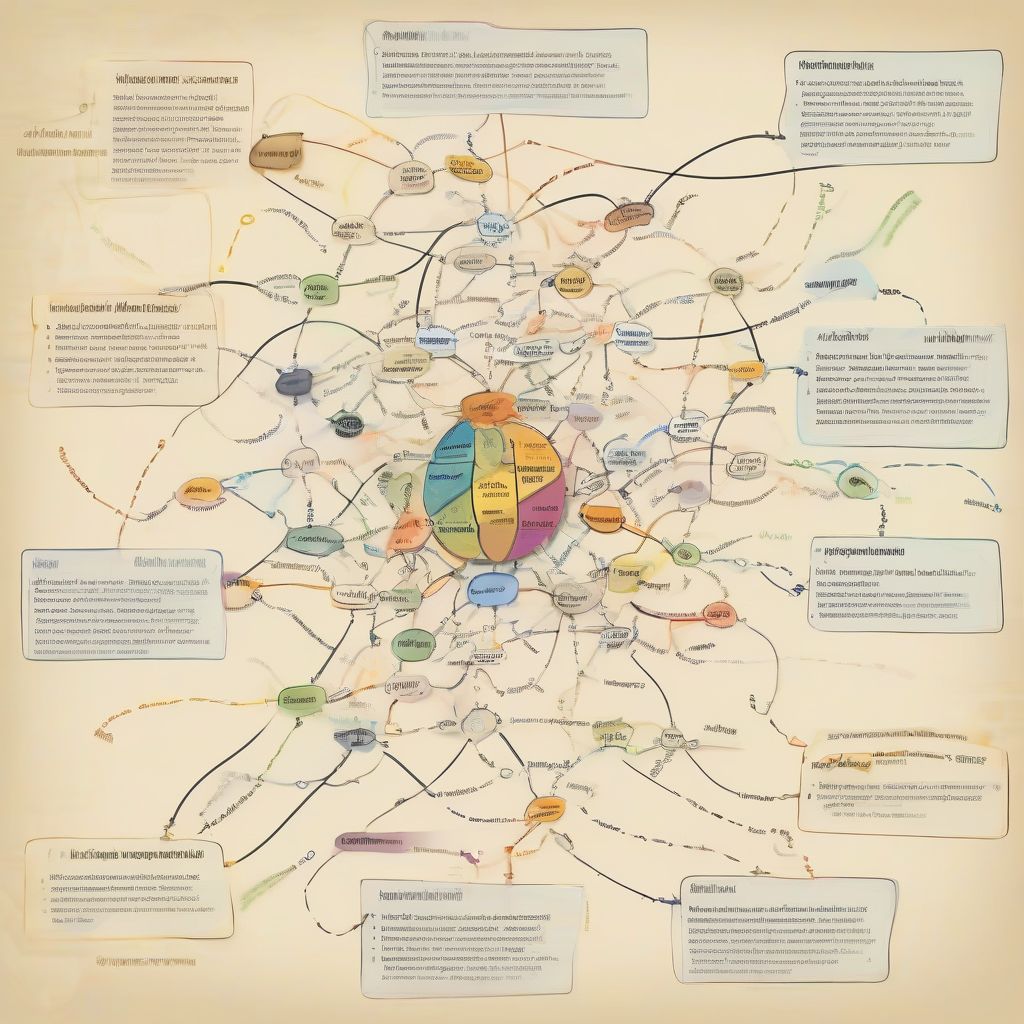Have you ever wondered what sets geniuses apart? Is it simply a higher IQ, or is there a complex interplay of psychological traits that contribute to their exceptional abilities? This article delves into a detailed analysis of the psychological characteristics often observed in geniuses, exploring the fascinating world of their minds and how these traits contribute to their groundbreaking achievements.
Unraveling the Genius Mind: Key Psychological Traits
While the definition of “genius” itself is debated, certain psychological traits frequently surface in individuals who demonstrate exceptional creativity, innovation, and intellectual prowess. Let’s explore some of these key characteristics.
Intense Curiosity and a Thirst for Knowledge
Geniuses are often driven by an insatiable curiosity. They possess a deep-seated desire to understand the world around them, constantly questioning, exploring, and seeking knowledge. This inherent inquisitiveness fuels their intellectual pursuits and allows them to make connections others might miss. As Albert Einstein famously said, “I have no special talent. I am only passionately curious.”
Persistence and a High Tolerance for Frustration
The path to groundbreaking discoveries is rarely smooth. Geniuses understand this and possess remarkable persistence. They are not easily discouraged by setbacks or failures but view them as opportunities to learn and grow. Their high tolerance for frustration allows them to persevere through challenges, often dedicating years, even decades, to their pursuits.
Independent Thinking and a Rebellious Streak
Geniuses often challenge conventional wisdom and think outside the box. They are not afraid to question established norms and forge their own paths. This independent thinking, sometimes bordering on rebelliousness, allows them to see the world from unique perspectives and develop innovative solutions. Consider Galileo Galilei, whose revolutionary ideas about the solar system challenged the prevailing beliefs of his time.
Openness to Experience and a Capacity for Wonder
Geniuses tend to be highly open to new experiences and possess a childlike sense of wonder. They embrace novelty, explore different perspectives, and are receptive to unfamiliar ideas. This openness allows them to connect seemingly disparate concepts and make groundbreaking discoveries.
Intense Focus and Deep Work
The ability to concentrate deeply for extended periods is another hallmark of genius. This “flow state,” as psychologist Mihaly Csikszentmihalyi calls it, allows them to immerse themselves completely in their work, leading to profound insights and creative breakthroughs.
Beyond the Myths: Debunking Common Misconceptions
While popular culture often portrays geniuses as eccentric loners, the reality is far more nuanced. While some geniuses may prefer solitude, many are highly social and collaborative. Furthermore, genius is not solely determined by genetics. While innate talent plays a role, environmental factors, including access to education and stimulating experiences, are crucial for nurturing intellectual potential.
 Psychological Traits of Genius
Psychological Traits of Genius
The Importance of Hard Work and Deliberate Practice
While natural talent is a factor, geniuses also dedicate significant time and effort to honing their skills. They engage in deliberate practice, focusing on specific areas for improvement and pushing themselves beyond their comfort zones. This relentless pursuit of mastery is essential for achieving exceptional results.
The Role of Creativity and Imagination
Creativity and imagination are essential components of genius. Geniuses possess the ability to generate novel ideas, make connections between seemingly unrelated concepts, and visualize possibilities others might overlook.
Cultivating Genius: Nurturing Your Own Potential
While not everyone can achieve the level of renown associated with historical geniuses, we can all strive to cultivate our intellectual potential. By embracing curiosity, persistence, and a willingness to learn, we can unlock our own unique talents and achieve remarkable things.
The Power of Lifelong Learning
Embracing a mindset of lifelong learning is crucial for continuous intellectual growth. Engaging in new experiences, exploring different fields of study, and seeking out knowledge can expand our horizons and stimulate our minds.
Conclusion: The Essence of Genius
Genius is not a singular trait but a complex interplay of psychological characteristics, hard work, and a supportive environment. By understanding these traits, we can gain valuable insights into the minds of exceptional individuals and discover how to nurture our own intellectual potential. The essence of genius lies not just in exceptional abilities but in the relentless pursuit of knowledge, the courage to challenge conventions, and the unwavering dedication to one’s craft. What are your thoughts on the traits of geniuses? Share your insights in the comments below!
- Used Book in Good Condition
- James Gleick (Author)
- James Gleick - (Author)
- English (Publication Language)
- Amazon Kindle Edition
- Feynman, Richard P. (Author)
- Yang Jianye (Author)
- Chinese (Publication Language)
- Feynman, Richard P. (Author)
- English (Publication Language)
- Richard P. Feynman (Author)
- English (Publication Language)
- Amazon Kindle Edition
- Roe, Alexander (Author)
- Amazon Kindle Edition
- Mentor House Press (Author)
- Richard P. Feynman (Author)
- Feynman, Richard P. (Author)
- English (Publication Language)










